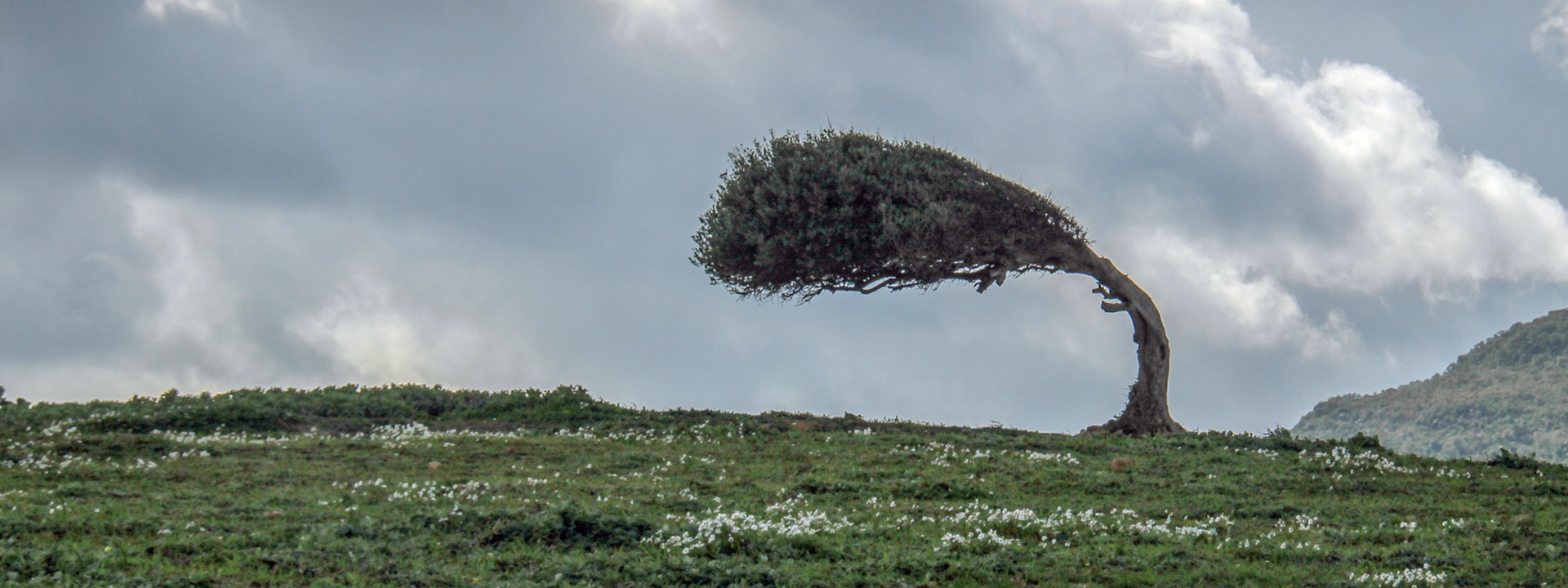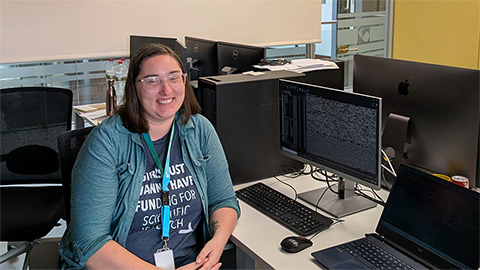
I survived sudden cardiac arrest and 37 days in a coma — then the hard part began
I didn’t come to understand the real cause of my cardiac arrest until I started working in a lab studying rare cardiac diseases. My PI was very curious about the details of my situation, which led me to become curious as well.
I suffered a sudden cardiac arrest and seizures when I was home for winter break during my freshman year at Tulane University. I was 18 years old.

My family lives in a rural part of Oklahoma. My parents performed CPR on me for more than 15 minutes before an ambulance arrived. Paramedics shocked me with a defibrillator three times at my house and several more times in the emergency room. From there, I began the fight for my life.
After a 37-day fight in an induced coma, with two bouts of bacterial pneumonia, mismanaged seizures and recurrent infections, I woke up on Feb. 14, 2020. The day before I woke up, the neurologist on my team said there were “no purposeful signs of activity” and that he “saw no signs of me waking up” and weaned my phenobarbital dose down. I woke up the next morning.
I am transgender, and doctors initially blamed my cardiac arrest on the hormones I was taking. They did no additional testing. The actual cause of my cardiac arrest was not discovered until 3.5 years later when it was revealed I have a rare genetic disorder called arrhythmogenic right ventricular cardiomyopathy, or ARVC. This was evident in every EKG I had ever had and would have been obvious with genetic testing, but doctors at the time were fixated only on my gender identity and looked no further.
I didn’t come to understand the real cause of my cardiac arrest until I started working in a lab studying rare cardiac diseases. My PI was very curious about the details of my situation, which led me to become curious as well. I reached out to the Johns Hopkins cardiac genetics department, and the people there became very interested in my case. It’s not every day that an 18-year-old has a cardiac arrest, survives a 37-day coma, and has no full cardiac diagnostic workup. This is just one example of my mentors being more than “just” scientists, but mentors to me as a whole person.
I immediately began my journey back to science. As soon as I regained my ability to see, I began reading a chapter a day of my biology textbook and doing a problem from my calculus textbook — relearning integrals and derivatives. Once I was able to, I began taking classes again.
This is where I hit bumps in the road. I had gone through school with a different disability (ulcerative colitis, an autoimmune inflammatory condition of the digestive tract), but it didn’t require accommodations from my university. I had never had to ask to have classroom or testing space made accessible so I could continue my education.
Now I had cortical blindness, which glasses could not correct. I needed image descriptions, tests with larger fonts, an environment with reduced distractions and other reasonable accommodations, for which I applied. The process left something to be desired.
Professors denied my accommodations and asked invasive questions about the nature of my disability, such as “What is wrong with you?” or “What happened to you?” Some argued with me about the necessity of my accommodations. Once, when I asked for help in a chemistry lab, the professor told me: “People with your disability cannot do chemistry or biology. I recommend switching to statistics or math.” Someone at the disability office also suggested I consider a different career path.
I began thinking about transferring to another school. I was torn; I worked in a great lab and had a few incredibly supportive professors — but it ultimately was not worth the fight.
Although I miss my former lab dearly, I am so glad I transferred to the University of Oklahoma. The disability services are not perfect, but they’re leaps and bounds better. Support systems and resources are better, and professors are more than willing to work with me to achieve my academic goals. I am treated by professors with kindness and understanding. I don’t have to fight for my accommodations. And no one has told me to abandon my microbiology major.
I also have incredible mentors who are always there to support me. They lend an ear when I have had a day of being told people like me don’t belong in the sciences, and they offer advice about what to do next.
A mentor can be a guiding light in difficult times, especially for underrepresented minorities, whose lived experiences are shaped differently than others.
One time, when I was continuously being denied accommodations, my PI was there for me. As we made our master mixes and did PCR for the day, I had a shoulder to lean on and got sound advice from someone who is familiar with the ins and outs of higher-level education and academia.
As someone who does not come from a family of researchers or academics, I found this immensely helpful. Many things are second nature and obvious to those who come from families with doctorates. I was totally unaware of those things and needed someone I could feel comfortable asking questions about these things.
My mentors are there for the good times, too. Whenever I have a success, like a grant or a scholarship, I let them know, and we celebrate (virtually, as we are at different institutions).
Institutions typically do not provide mentors with resources and funding to dedicate extra time and energy to support students like me. It comes out of their own time and their own dime, which is unfortunate given the extreme benefits mentoring has on students.
Institutional support and funding for mentoring are critical to prevent underrepresented students or students who have experienced traumas from falling behind and falling out, as they deserve every chance to be included in the university space, just like every other student.
My mentors have been crucial in providing me with a phenomenal support system in academia and the sciences, and I would not be where I am today without them.
Today, I’m an intern at the National Institute of Diabetes and Digestive and Kidney Diseases, a National Science Foundation–Louis Stokes Alliances for Minority Participation fellow, and an aspiring scientist.
I know that when there is a hurdle or barrier in my way, I have mentors in my corner who I can rely on to support me.
Enjoy reading ASBMB Today?
Become a member to receive the print edition four times a year and the digital edition monthly.
Learn moreGet the latest from ASBMB Today
Enter your email address, and we’ll send you a weekly email with recent articles, interviews and more.
Latest in Opinions
Opinions highlights or most popular articles

Women’s health cannot leave rare diseases behind
A physician living with lymphangioleiomyomatosis and a basic scientist explain why patient-driven, trial-ready research is essential to turning momentum into meaningful progress.

Making my spicy brain work for me
Researcher Reid Blanchett reflects on her journey navigating mental health struggles through graduate school. She found a new path in bioinformatics, proving that science can be flexible, forgiving and full of second chances.

The tortoise wins: How slowing down saved my Ph.D.
Graduate student Amy Bounds reflects on how slowing down in the lab not only improved her relationship with work but also made her a more productive scientist.

How pediatric cataracts shaped my scientific journey
Undergraduate student Grace Jones shares how she transformed her childhood cataract diagnosis into a scientific purpose. She explores how biochemistry can bring a clearer vision to others, and how personal history can shape discovery.

Debugging my code and teaching with ChatGPT
AI tools like ChatGPT have changed the way an assistant professor teaches and does research. But, he asserts that real growth still comes from struggle, and educators must help students use AI wisely — as scaffolds, not shortcuts.

AI in the lab: The power of smarter questions
An assistant professor discusses AI's evolution from a buzzword to a trusted research partner. It helps streamline reviews, troubleshoot code, save time and spark ideas, but its success relies on combining AI with expertise and critical thinking.

